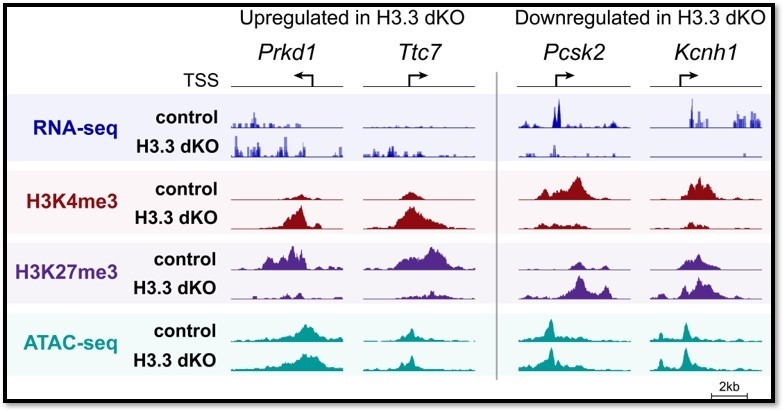You are here
Chromatin Regulation of Neuronal Identity and Connectivity
Speakers
Abstract
Research in the Kwan laboratory (kwanlab.org) is aimed at the genetic mechanisms that underlie normal development of the cerebral cortex and their dysregulation in human neurodevelopmental disorders. We specialize in unraveling the mechanistic underpinnings of developmental processes in vivo, using an integrative approach at the interface of mouse genetics, functional genomics, molecular biology, and circuit neurobiology. Recently, we have focused on the transcriptional and chromatin regulatory mechanisms that specify neuronal identities during brain development. Our recent work includes the discovery of surprising functions for the histone H3 variant, H3.3, in enabling both deposition and removal of chromatin modifications in new neurons to establish the neuronal transcriptome (Funk et al., PNAS, 2022). We find that newborn cortical neurons substantially accumulate H3.3 immediately postmitosis. Co-deletion of H3.3 genes H3f3a and H3f3b from new neurons: a) abrogates de novo H3.3 deposition; b) markedly alters the acquisition of the chromatin landscape; and c) causes widespread disruptions to the establishment of the neuronal transcriptome. Thus, preexisting H3 histones are insufficient for establishing neuronal chromatin; de novo H3.3 is essential. The significance of this study is underscored by the finding that thousands of genes are disrupted by loss of new H3.3; these broad expression changes coincide with robust phenotypes in neuronal identities and axon pathfinding.


